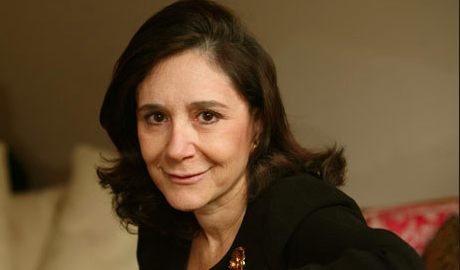Profiles in Mentoring: A conversation with Dr. Liz Raposa
 Written by Jelle de Graaf and Vera van den Berg
Written by Jelle de Graaf and Vera van den Berg
Dr. Elizabeth Raposa is an Assistant Professor in the Department of Psychology at the College of William and Mary. Dr. Elizabeth Raposa has her own lab ‘Raposa lab’. Her ongoing research is related to stress and socio-emotional development.
Can you tell us about your background in studying mentoring?
Prof. Raposa: My background is in how early life stress shapes development, particularly social development. My mentoring research is really interested in how mentoring interventions can leverage close relationships with adults to try to buffer some of the negative effects of early life stress.
In particular, I am really interested in figuring out if there are certain kinds of mentoring interventions that are most helpful for children who are experiencing a lot of stress- whether that is severe chronic poverty or living in a foster care system. ‘Are there certain mentors that work best with these youth? Or certain techniques or programs that are most helpful for these children?’
How did you become interested in the subject of mentoring?
Prof. Raposa: I was doing a lot of research as a doctoral student on how stress affects children, and learning a lot about how children struggle socially and emotionally and develop risk for mental health problems when they’ve encountered a lot of stress in their lives. That naturally led me to thinking about what can we do to help them. Since we know that these things can cause difficulty for children, are there any interventions out there that could be really helpful for them?
I had learned about and practiced therapy and clinical interventions, but I was looking for something that could reach a greater number of children, and so mentoring seemed like a great fit for that. There were these large scale mentoring programs that could reach the needs of many, many children, more so than clinical interventions like one-to-one therapy. After developing this interest, I was fortunate enough to meet Jean Rhodes and start working with her, and it took off from there.
What research did you work on with Jean Rhodes?
Prof. Raposa: My first article with Jean looked at how stressors within a child’s life and problem behaviors that the child was exhibiting affected the child’s relationship with a formal mentor. We saw that higher levels of youth stress and problem behavior led to mentoring relationships ending earlier.
Then we asked the question, “Are there certain kinds of mentors who work better with these youth?” That is, mentors who don’t have the relationship end early, even though there are these stressful things going on with the child.
We found that there are certain mentor factors that can mitigate the risk that a child brings into the relationship–for example, mentors who come into the relationship with higher self-efficacy and believe that they are have a chance of making an improvement in the child’s life, and also mentors who have previous experience interacting with youth in their communities. Those two mentor characteristics were able to eliminate the effect of youth stress and problem behavior on how long the mentoring relationship lasted, and prevent those early terminations.
That was my first study on mentoring, and from there I have moved on to working with Jean on a couple of projects that give us a ‘bird’s eye view’ of mentoring in the U.S. We are working on a meta-analysis to look at, overall, how effective is mentoring and which kinds of practices are more or less effective. Also, very consistent with my interests, are there certain kinds of youth for whom mentoring is more or less effective—including youth factors like age and demographics. We also looked at the general trends of who is mentoring in the United States and whether there are certain groups of mentors that we need to recruit more heavily, train more, or provide more support.
Most recently, we’re looking at neighborhood and family poverty and how that influences a youth’s access to naturally acquired mentors–so not an assigned, formal mentor, but instead a caring adult a youth knows and feels close to and reaches out to for support. How does poverty affect that process? We’re seeing that children who grow up in poverty have fewer natural mentors, and they are also likely to get very different kinds of support—so natural mentors look different depending on the youth’s socioeconomic background.
What is your reach within your research?
Prof. Raposa: All of our studies so far have used nationwide samples. And my most recent project, which I am just starting data collection for now is actually international. We have sites across the U.S. and across Mexico. That study is looking at what child and mentor characteristics predict the closest matches. For example, are there certain demographic variables, attitudes, or personality traits for either the child or mentor that make for a particular strong match. We are hoping to create an algorithm to try to guide mentoring programs as they make matches between mentors and youth.
Is there something that really stands out in your research that you found practically interesting or very surprising?
Prof. Raposa: Something that I have been talking a lot about with Jean is that mentoring relationships, whether they are assigned or form naturally, have such a huge potential to help the children who need it most (the kids who are most stressed). But it is also those most at-risk youth who struggle most to reach out and acquire a mentoring relationship. It’s kind of this vicious circle where there is so much potential to help and support these struggling youth. But at the same time, there are also so many barriers to setting up these relationships, making them last, and making them high-quality relationships, because there are so many other stressors and obstacles in those children’s lives.
That paradox of how to get this important social resource to the children who need it most is something that really stands out to me.
Have you had mentors yourself?
Prof. Raposa: Yes, I have participated in more formal mentoring programs–not as a child, but now for example, there are formal mentoring programs where I’m paired with mentors in academia who are supporting me as a new faculty member at my university.
More relevant to my research, I have had a lot of natural mentors. Growing up there were caring adults that I could reach out to, that I met through school or who my parents had connections to . Those natural mentoring relationships had a huge influence on me as I figured out what I wanted to do. I don’t think I would have gotten connected to the field of psychology without some of those natural mentors. Even now, people like Jean and other amazing scholars in the field of mentoring have been so helpful in shaping the way I think about mentoring. I am super grateful for all my mentors.
Lastly, would you like to share an article or literature with us that has been inspirational during your work within mentoring and can you tell us why this has been inspirational?
Prof. Raposa: Yes, of course:
Schwartz, S. E., Rhodes, J. E., Chan, C. S., & Herrera, C. (2011). The impact of school-based mentoring on youths with different relational profiles. Developmental psychology, 47(2), 450.
I found it inspiring because it suggested that mentoring is more or less effective depending on what youth bring into the relationship in terms of their relational history. I’m really interested in research that looks at how youth and mentor factors can shape the outcomes of mentoring relationships, particularly for youth who have very stressful relational histories.








